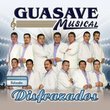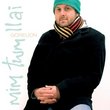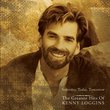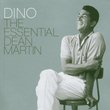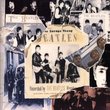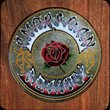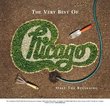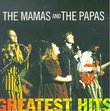| All Artists: Lovin Spoonful Title: The Lovin' Spoonful - Greatest Hits Members Wishing: 5 Total Copies: 0 Label: Buddha Original Release Date: 2/22/2000 Release Date: 2/22/2000 Album Type: Original recording remastered Genres: Pop, Rock Styles: Oldies, Folk Rock Number of Discs: 1 SwapaCD Credits: 1 UPC: 744659971624 |
Search - Lovin Spoonful :: The Lovin' Spoonful - Greatest Hits
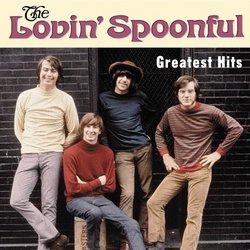 | Lovin Spoonful The Lovin' Spoonful - Greatest Hits Genres: Pop, Rock
It sometimes feels as though the Lovin' Spoonful have been reduced to a footnote in the history of rock & roll. Yet few of their contemporaries could match the likes of "Daydream," "Summer in the City," and the transce... more » |
Larger Image |
CD DetailsSynopsis
Amazon.com It sometimes feels as though the Lovin' Spoonful have been reduced to a footnote in the history of rock & roll. Yet few of their contemporaries could match the likes of "Daydream," "Summer in the City," and the transcendent "Do You Believe in Magic?"--a song that can still turn January into June. Legend has it that the Spoonful auditioned for The Monkees, and they'd have been good in those roles, having the right candy-sweet sound and a warm humor in constant evidence. But it wouldn't have lasted: lead songwriter John Sebastian was too willful and idiosyncratic, coming on like an American Ray Davies on songs such as "Younger Generation," a prescient meditation on the hippie generation's future parental dilemmas. Greatest Hits is a fine 26-song introduction to a perennially underrated band. --Taylor Parkes Similar CDs
Similarly Requested CDs
|
CD ReviewsDidn't Rhino Do This Same Collection 10 Years Ago? Steve Vrana | Aurora, NE | 03/11/2000 (5 out of 5 stars) "It's official. The Lovin' Spoonful were inducted into the Rock 'n' Roll Hall of Fame as part of the Class of 2000. And What does Buddah do to celebrate the label's most successful act? It clones the Rhino Anthology that's been available for the last ten years! Granted, Buddah claims these songs are recorded from first-generation masters, but the difference in sound quality is negligible.Both anthologies contain 26 songs. So what's the difference? Very little. Twenty-three songs are duplicated on Greatest Hits. Where Anthology includes "Good Time Music" (from an Elektra sampler before the Spoonful recorded their first album), "Fishin' Blues" and "Me About You" (from the Joe Butler-led Spoonful--and their final chart single at No. 91), Greatest Hits offers instead "Wild About My Lovin'," "On the Road Again" and "Darlin' Companion." The differences between the two releases make Greatest Hits virtually unnecessary if you already own Anthology. Sure there are new liner notes, and some terrific photos from Henry Diltz, whose work has graced many of the Spoonful's original albums. But is that enough? I don't think so. This should have been a 2-CD set. And if it couldn't have included any previoulsy unreleased material, it could have offered some live versions from the band's mid-Sixties prime. At the very least, a two-disc set would have been more comprehensive and more valuable to die-hard fans. We can only hope that Buddah will see fit to release the Spoonful's entire catalog either as two-fers or loaded with bonus cuts." Thank You Buddha Records! Phil | CA | 03/21/2000 (5 out of 5 stars) "Wow! I almost didn't buy this collection after reading other amazon reviews and how similar it was to the Rhino CD, but boy good thing I did. First off, this compilation is not only cheaper than than the Rhino package, but sound wise it blows the doors off the Rhino package. Did Rhino take their compilation from old records? This thing sounds amazing, I don't know any other way to describe it. The package says it was taken from the original master tapes for the 1st time and boy does it show. I can't say enough about the sound because being a long time fan, I have always been dissapointed with the way that their CD's have sounded. Great liner notes from Ben Edmonds of Cream & Mojo magazine with lots of information I never knew. I hope Mojo has a big feature planned soon. As far as the tracks go, yeah it's the best of the Lovin Spoonful what more could you want? Don't be fooled friends, this is the must own Spoonful package! Let's hope Buddha reissues the entire LS catalog this way." A Spoonful of Magic Gavin B. | St. Louis MO | 01/25/2003 (5 out of 5 stars) "The Lovin' Spoonful seldom makes anyone's short list of great sixties bands. Their legacy has been cheapened by Buddah Record's exploitation of their back-catalog in an endless stream of ill-conceived "greatest hits" collections that are of abysmal quality. But that's not all... In the summer of 1966, guitarist Zal Yanovsky and bassist Steve Boone were arrested for marijuana possession in San Francisco. In exchange for immunity, Yanovsky and Boone assisted the police in setting up Bill Love, manager of the popular 60's comedy improv ensemble, the Committee. The Lovin' Spoonful became a "nark" band and were forever banished from the musical underground. It's unfortunate because the Spoonful and John Sebastian's music may never be examined on it's own terms, without regard to the band's pariah reputation in the 60s.It was John Sebastian that was the focal point of the Spoonful. A talented multi-instrumentalist, Sebastian had a keen melodic ear and the lyrical talent of a tin pan alley master, like Ira Gershwin. Sebastian brought the best traditions of American folkways to Top Forty radio. "Wild About My Loving" is a variation on a song played by the legendary Mississippi Sheiks an African American ragtime and blues band. "Nashville Cats" sings the praises of yellow Sun records from Nashville. "Jug Band Music" is about, well, jug band music. Sebastian certainly broadened the scope Top 40 music playlists. In addition, Sebastian songs like "Summer In the City" and "Daydream" were in the best traditions of American tin pan alley songcraft. After ill conceived several tries, Buddah Records has finally released a complete remastered collection of the Spoonful's greatest hits. Within this context, the Spoonful rise about the "nark" band fiasco, to deliver the goods. Sebastian and the Spoonful had pretty much run their course by 1968 but left a stellar string of hit singles. Sebastian was offered a fourth slot in Crosby,Stills and Nash, which he declined and went on to be the whimsical tye-dyed poster boy for Woodstock. He wrote the theme to the "Welcome Back Kotter" television show which probably assures him that he will never have to work a day job. He is still a regular on the tour circuit and still a delight on the concert stage (I saw him in Boston a couple of years ago.)"
|

 Track Listings (26) - Disc #1
Track Listings (26) - Disc #1